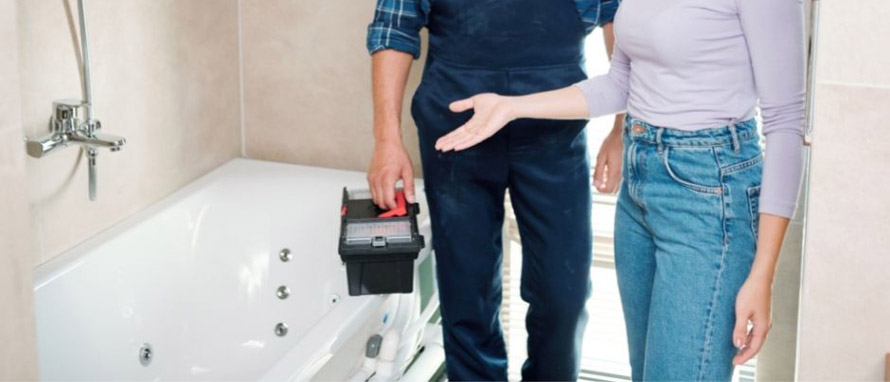How to Unclog a Sink
Sink clogs are one of the most common yet misunderstood types of plumbing issues. Sinks are among the most-used facilities in a home, which is why they clog so often. Bathroom sinks and tub drains collect hair and soap residue, kitchen sinks can get backed up with food waste, and utility sinks can get jammed up with all kinds of detritus. The signs of a clog are obvious—water no longer drains, or drains much slower than it is supposed to—but what to do about it isn’t always so clear that is why we’ve created this blog to teach you how to unclog a sink.
For example, many people assume that when water stops draining, there must be a deep clog. This is not necessarily true—sometimes, all you need to do is remove the drain plug and whatever is causing the clog is pulled right up with it. Or you can insert a straightened paper clip, wire hanger, or specially made declogging tool, and chances are you will start pulling out the gunk that’s got the sink stuck. Some older sinks have mesh catchers that can get clogged with hard-to-see dirt and hair, so make sure you thoroughly clean any catchers that have been installed.
You may do all of this and water still doesn’t drain properly. That is when the clog may indeed be found somewhere farther down the plumbing system. While Powell’s Plumbing would love to help you unclog your sink, it also might make sense to not pay for a fix without trying some DIY tips first. So, here are a few tips on how to unclog your sink. Chemical drain cleaners can be effective, but before you reach for the bottle of drain-scouring chemicals, consider the following:
- Are your pipes made of metal or PVC? Drain cleaners can corrode metal pipes if they are used too frequently.
- What are the chances of the clog being organic (hair, food, etc.)? If you’re fairly certain the clog is made up of organic material, drain cleaners will likely be effective. But if you’re not sure, pour a small amount down and wait 15 minutes. If drainage isn’t improved, it’s probably not an organic clog and drain cleaner isn’t going to do the trick.
- How many times have you poured drain cleaner down this particular drain? If you’re constantly using drain cleaners, you could be contributing to the buildup of toxins in your community’s water and air.
After taking all of this into consideration, if drain chemicals do the job, then great! If not, the problem most likely is with the plumbing below the sink. All sinks are unique, so that’s where this can get messy. If you are familiar with your sink’s plumbing configuration and can easily disassemble the plumbing to investigate for clogs, then go for it. But if it is a new sink or the first time you’ve experienced a clog with that particular sink and don’t know how to unclog your sink, it’s probably best to call the experts at Powell’s Plumbing.
We’ve seen pretty much every sink configuration out there, so we’ll be able to quickly diagnose, investigate, and solve even the toughest clogs. That way, you don’t need to spend an entire Saturday messing around with it, going back to Home Depot three times, and missing out on good R&R time. Let us handle those messy clogs! You’ll be glad you did.





Recent Comments